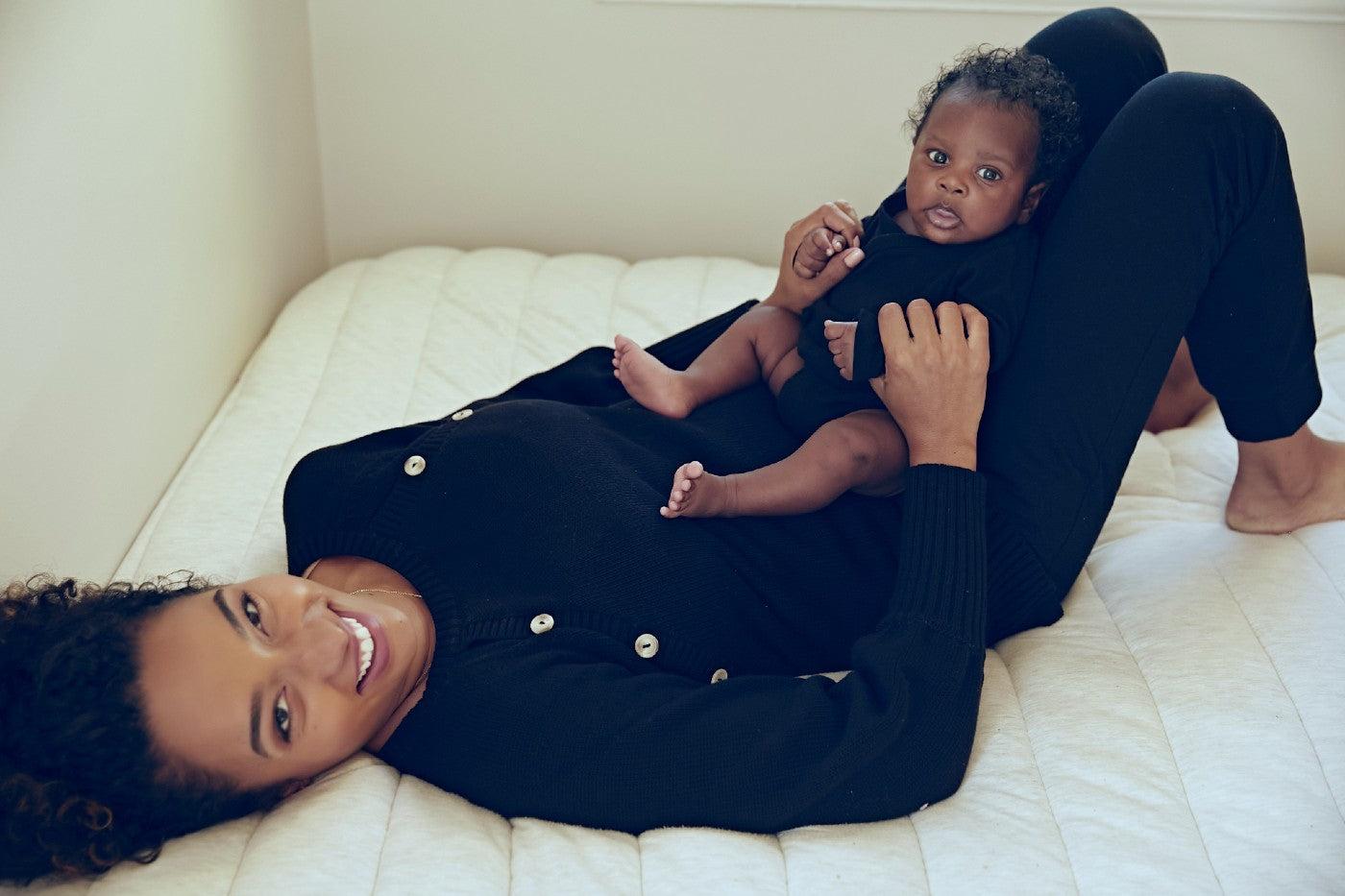PARENTS
How One Mum Is Taking on the Black Maternal Health Crisis
Rachel Nicks is determined to support and empower Black mothers—and so Birth Queen was born.

Written by
Happiest Baby Staff

Giving birth should be a joyful experience. Yet, for far too many Black American parents, it is a terrifying one. The tragic reality is that Black American mothers are dying at three to four times the rate of their American white counterpoints (and in New York City at 12 times the rate). What is more, Black American babies are twice as likely to die before their first birthdays. This staggering disparity is seen at all income levels and has roots that reach back to slavery.
But Rachel Nicks is not daunted by the enormity of the Black maternal mortality crisis. Instead, she is tackling it with her fledgling nonprofit Birth Queen, the idea for which she conceived last year.
Pregnant with her second son and busy raising her first, June 2020 hit Rachel hard.
'I was not a take it to the ‘gram kind of girl, but last year was intense. I was pregnant with Baldwin when George Floyd happened,' she remembers. 'I was having a lot of anxiety. I wanted to be part of the solution and not live in the trauma of race relations as a Black mother to Black sons. I was worried about bringing a Black son into the world.'
The Juilliard-trained actress is also a certified trainer with a niche in pre- and post-natal fitness, a doula, and a lactation counselor (making her at least a quadruple-threat, by our count). With her multi-disciplinary background and platform, Rachel realised that she was uniquely qualified to improve Black American birthing experiences. Because so much of her passion and her previous work centered on motherhood, directing her talents and energy toward Black maternal health was a no-brainer.
![[object Object]](https://cdn.sanity.io/images/301lhh0a/production/37ed542111e6f54119091332fcb06a9b35a03dc9-360x480.jpg?w=750&auto=format&q=75&fit=max)
'You hear the statistics, and everyone gets paralysed. But I know the fix: Giving Black women education and support in terms of doulas, lactation counselors, midwives, and birth workers,' she says.
She established Birth Queen as a conduit between people who want to help and organisations and birth workers that support Black American families, such as BeLoved Birth Black Centering—an Oakland-based nonprofit that provides free doula services to low-income families as well as support in the form of postpartum meals from Black-owned restaurants and care products.
'You knew how important it was to feel educated and empowered on this journey, so I’m asking, can you give this to someone else because right now? Black mothers are afraid to die. Can you imagine entering this situation and thinking you will die? Because that’s what it is,' Rachel says. 'But people can be part of the solution, and Birth Queen gives them ways to do that.'
While addressing the Black maternal health crisis is at the heart of Birth Queen’s mission, curbing the tragic deaths of Black mothers is just the starting point. In fact, Birth Queen’s name is a nod to the fact that Black mothers are the descendants of royalty—and deserve to be treated that way.
'Saving lives so Black women can survive is just the baseline. Of course, women shouldn’t fear for their lives while giving birth,' Rachel says. 'But we also have the right to live and relish in femininity, beauty, and abundance, so that’s a large focus.'
If Black maternal mortality has been weighing heavily on you, too, visit birthqueen.org to donate directly to Birth Queen, learn about organisations, initiatives, and midwives tackling this issue, or get support for yourself.
Disclaimer: The information on our site is NOT medical advice for any specific person or condition. It is only meant as general information. If you have any medical questions and concerns about your child or yourself, please contact your health provider. Breastmilk is the best source of nutrition for babies. It is important that, in preparation for and during breastfeeding, mothers eat a healthy, balanced diet. Combined breast- and bottle-feeding in the first weeks of life may reduce the supply of a mother's breastmilk and reversing the decision not to breastfeed is difficult. If you do decide to use infant formula, you should follow instructions carefully.
SHARE THIS ARTICLE
PARENT PICKS
Bestsellers



















